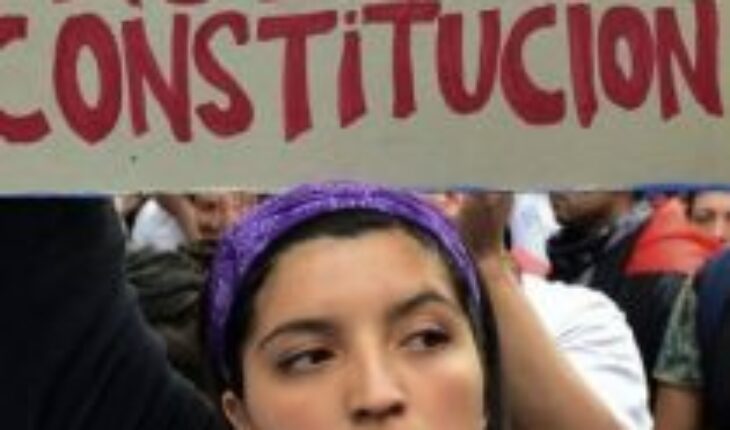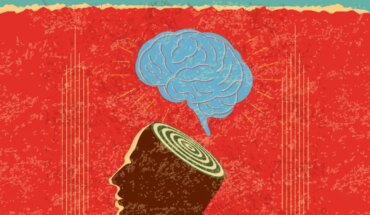This Friday and Saturday, the conventionals had their last opportunity to address the plenary. The aim was supposed to be to discuss the proposal of the Harmonisation Committee to be voted on next week. The six minutes that each of us had, however, we all used them to say goodbye to the constituent process and deliver a final look at what it was for each of us. There was a lot to say, but they had to fit in six minutes. Here’s what I read:
“So far, the presentations heard have opted for one of the following evaluations of the Convention: a magnificent event, a failure or missed opportunity, an unfinished process. I am leaning towards the latter.
It could hardly be otherwise, from the moment we are shaping a political agreement that allows us to face an ongoing cultural change. We hardly see it clearly, because we are inserted in it. We are experiencing it: a mega innovation in the field of communications, which has profoundly transformed our political relations; the emergence of women demanding their place in public decision-making, one of the greatest cultural revolutions in human history; a global warming that threatens planetary subsistence less hypothetically than an atomic bomb. All phenomena of unprecedented consequences. This is not just a national challenge, but a global one. This is what explains the interest we have aroused in political scientists from very different latitudes.
We can evaluate with greater or lesser enthusiasm the text that we are about to sanction, but it is undeniable that it faces these new realities. It does so imperfectly, foundingly, embryonically. There are many issues that we are looking at here for the first time and that will require the contribution and knowledge of many others to finish curdling in a well-tuned institutionality: parity, ecological coexistence, regionalization, direct democracy, the recognition and protection of diversities, plurinationality, the social rule of law. The engine room that sought legitimacy here will surely need adjustments when entering filming.
What is clear to me is that the Pinochet constitution, which has become the constitution of the transition, is anachronistic and incapable of facing these new realities in order to generate social peace. There are no reforms capable of updating it, because it starts from an outdated conception. The proposed text, on the other hand, sets out a new starting point. If it were written in stone, I would reject it. In these times of change and uncertainty, any opinion deaf to the corrections that a groping gait demands of us, seems absurd and obstinate. I take it for granted that, if this text is approved, it will suffer from the next day proposals for improvements, amendments agreed between the different political forces that will expand its support mesh and incorporate those looks to which here, due to the characteristics and the moment in which the discussion took place, we did not know how to give enough space.
The great force that moved this Convention is called “inclusion”: old people, children, disabled, neurodivergents, diversities, provincials, women, indigenous people… All of them pushing for a space of visibility, consideration and respect.
It is true, many of those who arrived demanding their place, denied it to those who had always had it. The right wing of the judge went to the dock. The historically marginalized marginalized her and forced her to experience that same fury daughter of exclusion. In this way, those who came with the will to participate – one part of the right, because the other came to boycott – “detonated”. Here we call “detonated” those who lose their temper and who opt for the deaf cry instead of the attentive word, for the heroic and stunning discourse, instead of putting their best efforts, without ever giving up, in combating intolerance. There are “detonated” in all sectors: they are those who, forgetting all sense of humor, unable to understand the weaknesses of others and their infinite capacity to err, dismiss and insult them, convinced of their own superiority and infallibility.
Democracy is a permanent and fragile construction, always perfectible and tirelessly threatened. And if we are facing any challenge now, it is its difficult expansion. Deciding between more and more diverse is exponentially more complex than doing it between few and similar.
In this Convention, the vociferous of the different sectors conqThey aroused the interest of the media and the networks, jaded many who hoped to see the common good put at the center instead of the voices themselves. But the rules didn’t win. The plenary and the obligation to conquer the 2/3 to impose each of them, knew how to frustrate their pretensions. The maximalist temptations that aspired to define in their details the way in which the general guidelines that we agree should be concretized were not imposed. They were mostly involved in the law and public policies. No norm marginalized the participation of the private sector in the provision of social rights.
I admired, during this time, the dedication with which all of us here are engaged in this task. I saw a transversal and moving delivery. I got tired at times, but I never lost the conviction of participating in an extraordinary event.”
Follow us on





